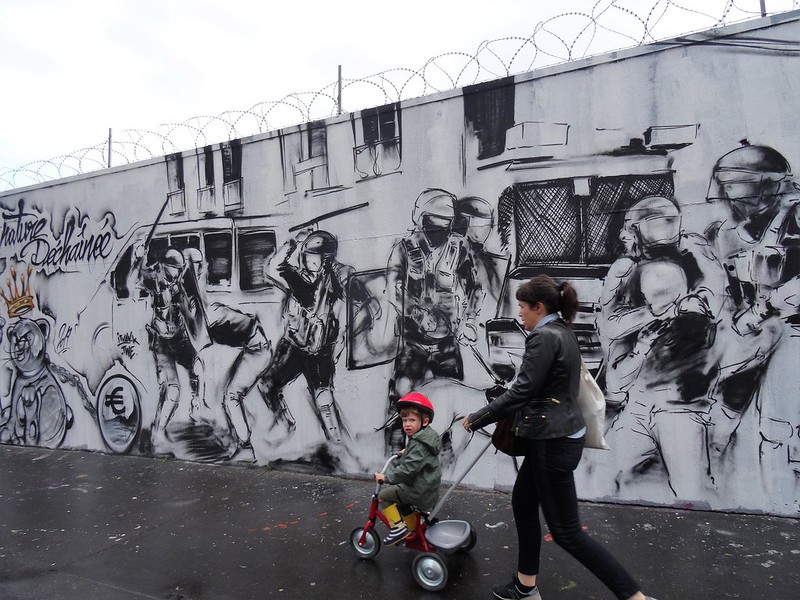By Harriet Bergman, originally published Nov. 25 via Hard head.
Police who want to enter into a dialogue with victims after a crackdown. Harriet Bergman doesn't believe it. She sees the police brutality during the Residential Revolt in Rotterdam as a needless provocation that overshadows the demolition of the Tweebosbuurt.
I took part in the Residential Revolt in Rotterdam. Because I had heard stories about the demolition of the Tweebosbuurt, because I was sometimes at the flash campaigns of Niet Te Koop and because I think that housing is a right, and that rights are not reserved for rich people. While I'm convinced that various social and environmental struggles are interrelated, I would have thought Sunday, October 17, would be a welcome distraction from my current research on climate justice, change, and violence.
That turned out not to be the case.
The wrecking ball through a social rental home is violence. Letting someone with Parkinson's walk up the stairs because the downstairs apartments have been sold is violence. Being pulled out of your social network because you have to move out of town is violence. Choosing between food or rent is violence. And being held hostage on a bridge, without explanation, not being able to get out, and ending up with a club, overhand, on my jaw, is violence.
The police started beating wildly in response
I walked around anarchists during the demonstration, many of them had already been searched, but their black hoodies and suspicious piercings had an effect on the police that normally only happens when they are ethnic profiling. “Something could happen,” was the explanation why suddenly a police line around me and my friends. Now and then a silent man with an activist sticker walked menacingly through the group. It was completely unclear what was going to happen and why we were being held. A group of PvdA youths wanted to leave the anarchists behind and move on, other parties such as Splinter quickly fled.
For a moment I thought we were going to be left behind, but then fellow protesters broke through the police line with a cottage on wheels to set us free. The police started beating wildly in response.
In the municipal debate of the Security and Governance Committee meeting, co-organizer of the Residential Revolt and Tweebosser Mustapha Eaisaouyen called the police baton that also hit me "excessive, absurd and reprehensible." Like many other speakers, he called for a thorough, independent and external investigation into the actions of the police.
You can't just intervene because "something could happen"
That won't happen. Instead, we get a dialogue. A popular saying in the housing struggle is of course "you can't live in bullshit." In the same way, talking to those who clubbed us away is no substitute for a statement of fact and an apology. Dialogue does not absolve you from responsibility and improvement. It's not about mutual understanding, it's about punishing the police officer who overhand punched my face that caused me to struggle to eat for a day. What matters to me is that there is no more overhand hitting. My point is that I am not necessarily suspicious if I walk in black, or happen to walk too close to someone who is dressed in black.
And while we're at it: what matters to me is that we don't just intervene because there is “something can happen”, but that one is presumed innocent unless proven otherwise. Then we can focus on violence of neoliberal demolition policies, of slum landlords over welfare mothers, of profit over people.
Eaisaouiyen's moment of participation was incredibly powerful and moving. He would have preferred to talk about other things too — it "should have been today about the housing crisis exacerbated by this college." But his conclusion was: don't give up. We are combative, and now all the more so.
